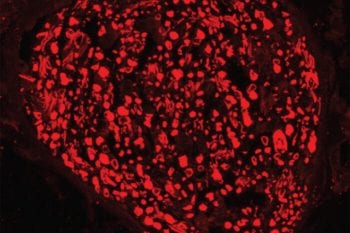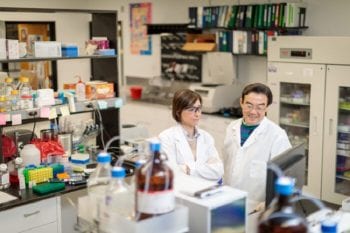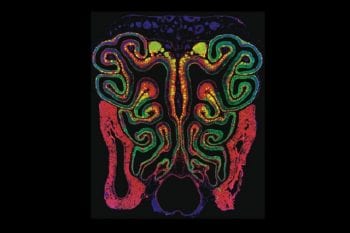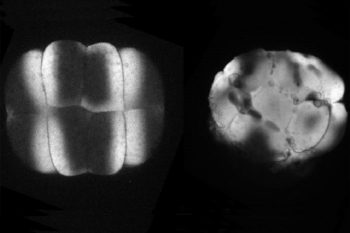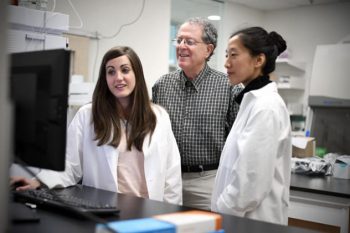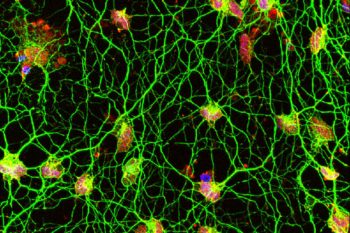From the WashU Newsroom… Nerve axons serve as the wiring of the nervous system, sending electrical signals that control movement and sense of touch. When axons are damaged, whether by injury or as a side effect of certain drugs, a program is triggered that leads axons to self-destruct. This destruction likely plays an important role […]
Gene therapy blocks peripheral nerve damage in mice
